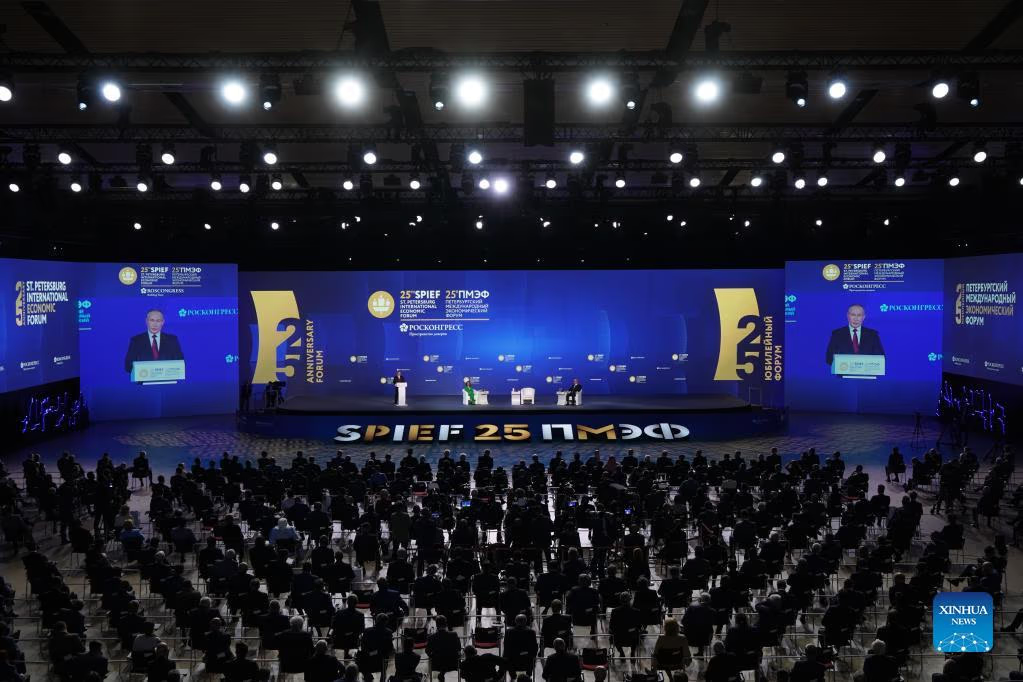When Israel launched Operation Rising Lion, Russian authorities described the escalation in the Middle East as "alarming" and "dangerous." Yet Russian media quickly shifted focus to the potential benefits for Moscow.
Among them: a rise in global oil prices, expected to bolster the Russian budget, and a decline in international attention to the war in Ukraine. "Kyiv is forgotten," declared a headline in Moskovsky Komsomolets. In addition, if the Kremlin’s offer to mediate the conflict is accepted, Russia could present itself as a regional power broker and peacemaker—despite its own war of aggression in Ukraine.

Rescue workers operate near a residential building in central Israel following a missile strike launched by Iran. June 15, 2025.

People assist the injured following Israeli strikes on Tehran. June 15, 2025.
Nevertheless, as Israel's operation drags on, it is becoming increasingly clear that the risks for Moscow outweigh the potential gains. "The escalation of the conflict carries serious threats and potential costs for Russia," noted political analyst Andrey Kortunov in an article for Kommersant.
The fact remains: Russia failed to prevent a large-scale Israeli strike against a country with which it signed a comprehensive strategic partnership just five months ago. "It is evident that Moscow is unwilling to go beyond political statements condemning Israel," observers note.

Vladimir Putin and Masoud Pezeshkian after signing the Comprehensive Partnership Agreement at the Kremlin. February 2025.
The strategic partnership agreement signed by Vladimir Putin and President Masoud Pezeshkian is not a military alliance and does not obligate Russia to defend Tehran. Nevertheless, at the time of its signing, Moscow sought to give it maximum significance.
In an interview with RIA Novosti, Foreign Minister Sergei Lavrov emphasized that the agreement places "special emphasis on strengthening coordination in the interest of peace and security at both regional and global levels, as well as on the commitment of Moscow and Tehran to deeper cooperation in the areas of security and defense."
Over the past six months, Moscow has already lost one of its key allies in the Middle East—Bashar al-Assad. Following his ousting in December, the Syrian leader was offered asylum in Russia. The prospect of regime change in Iran and the potential loss of another strategic partner in the region is causing serious concern in the Kremlin.
Commenting on the Middle East situation, Moskovsky Komsomolets summed it up on Tuesday: "Right now, global politics is undergoing sweeping changes in real time—and they will, in one way or another, affect life in our country."
This week, Vladimir Putin is spending several days in St. Petersburg, where the International Economic Forum is taking place. Once dubbed the "Russian Davos," the label has since lost its relevance. In recent years, the heads of major Western corporations have largely shunned the event—particularly since Russia’s full-scale invasion of Ukraine.

Main hall of the St. Petersburg Economic Forum.
Nevertheless, the organisers claim that this year’s forum has confirmed participation from representatives of more than 140 countries and territories. For the Russian authorities, the event is an opportunity to demonstrate that efforts to isolate the country internationally have failed.
The forum is economic in nature, but politics is never far off. Particular attention will be paid to what the Russian leader says about developments in the Middle East and the war in Ukraine.
Allies—Almost

An Alliance Doomed to Asymmetry
Why Strategic Rapprochement With China Is Leading to a New Russian Dependency

